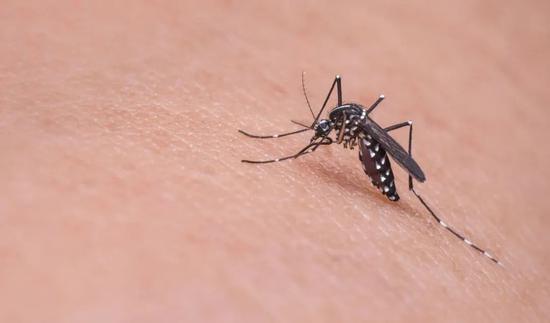
Text/China Zhuo Ma
As the Spring Festival approaches, the number of returnees has increased significantly recently, and imported malaria has also occurred from time to time. Recently, many disease control departments notified and identified malaria cases.
How to identify and prevent malaria, and what should be paid attention to when planning to go abroad/return to China in the near future?
Many disease control departments issued reminders.
Recently, many disease control departments notified and identified malaria cases.
According to the news of Huizhou CDC on January 24, on January 19, Huizhou CDC identified a case of imported malaria, which was confirmed as falciparum malaria by microscopic examination. At present, the patient has been treated in time.
On January 18, a rare malaria case was identified by disease control in Yantai, Shandong Province. After microscopic examination and fluorescent quantitative PCR detection, the case was confirmed to be a mixed infection of falciparum malaria and oval malaria.
On January 19, Jiangsu Xuzhou CDC issued an urgent reminder: please be vigilant against imported malaria for returnees.
Malaria is an acute febrile disease, which is parasitic on human body by plasmodium and transmitted by the bite of female Anopheles. Patients will feel chills, fever and chills during the attack, which is commonly known as "shaking" and "miasma" in ancient times.
There are four main types of malaria: vivax malaria, falciparum malaria, ovoid malaria and three-day malaria. Due to the cross-border movement of people, there are a certain number of imported malaria cases in China every year, and severe cases and deaths sometimes occur. Acute severe malaria attack will lead to coma and disturbance of consciousness, and lead to multiple system failure and death.
How to prevent and check?
The prevention of malaria mainly includes mosquito bites (such as mosquito nets, mosquito repellent liquid, mosquito repellent incense, etc.), drug prevention (intervention with antimalarial drugs) and timely diagnosis and isolation treatment of infected people.
There are mainly the following three inspection methods:
1. Blood routine: Red blood cells and hemoglobin decrease after repeated attacks, especially falciparum malaria; The total number of white blood cells can be slightly increased at the beginning, then normal or slightly lower, and the number of mononuclear cells in white blood cell classification is often increased, and malaria pigment particles are seen to be swallowed.
2, plasmodium examination: blood smear (thin or thick) staining to check plasmodium. And can identify the species of plasmodium.
3. Immunological examination: it is simple, rapid and has a wide range of applications, and there is a certain rate of missed detection. It is generally used for epidemiological examination.
I have been to malaria epidemic areas, and I have symptoms such as chills, fever and headache within one month after coming back. I suspect that I am infected with malaria. I suggest going to the hospital as soon as possible to inform medical staff of my contact history in the epidemic areas, so that medical staff can check and diagnose malaria and make early diagnosis and treatment.
Malaria endemic areas are mainly distributed in Africa, Southeast Asia, the Eastern Mediterranean and America, among which sub-Saharan Africa and Southeast Asia are highly endemic.
Malaria cases have been reported in Thailand, Indonesia, Vietnam, Brazil, Myanmar and other popular tourist countries.
In the World Health Organization’s malaria report in 2022, 84 malaria-endemic countries reported about 247 million malaria cases in 2021, of which 619,000 people died of malaria; Most cases and deaths occurred in Africa, followed by Southeast Asia.
What should I pay attention to when planning to go abroad/return to China in the near future?
Before leaving the country, you should know the epidemic situation of malaria in the destination country and learn the knowledge of malaria prevention and control. You can consult the local customs or the international travel health care center about the use of preventive drugs.
During overseas travel, try to avoid going to the wild activities from dusk to dawn the next day (the peak of mosquito activity) in malaria-endemic countries or regions; Wear long-sleeved clothes and trousers for outdoor activities at night, and apply repellent to prevent mosquito bites at exposed parts of the skin to prevent bites; Use mosquito nets, mosquito coils and other anti-mosquito measures when sleeping; Once symptoms such as chills, fever and diarrhea appear, you should see a doctor in time to prevent the disease from getting worse.
When returning to China, if you have fever, diarrhea and other symptoms, you should truthfully declare your health status and residence history in malaria-endemic areas to the customs, and cooperate with the investigation of infectious diseases.
After returning to China, if the returnees who have lived in malaria-endemic countries or regions for a short period of time have symptoms such as fever and diarrhea within one month after their entry, they should go to hospitals at or above the county level in time and inform doctors of their living history in malaria-endemic regions or countries, so as to find, diagnose and treat them early and avoid life-threatening.
Returnees who have not lived in malaria-endemic countries or regions for a short period of time are advised to go to medical institutions for plasmodium testing in time after entry. If you have fever symptoms within 2 years after entering the country, you should go to the hospital at or above the county level in time and inform the doctor of the history of living in malaria-endemic countries or regions.
Comprehensive compilation from Huizhou CDC, Xuzhou CDC, Yantai CDC, Beijing CDC, Health Times, Qingyuan Hospital of Traditional Chinese Medicine, etc.